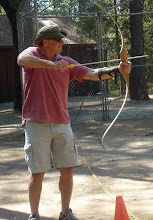Wednesday, December 26, 2012
The Incredibles
Monday, August 20, 2012
Mentor
Saturday, June 16, 2012
Culture
Sunday, April 8, 2012
Milleage

Tuesday, March 27, 2012
The Minkey

Saturday, February 4, 2012
Elections
 Close elections maximize the leverage voters have to get their singular issues addressed. That can be useful, but a 51-49% kind of result tastes of division. Division tastes bitter.
Close elections maximize the leverage voters have to get their singular issues addressed. That can be useful, but a 51-49% kind of result tastes of division. Division tastes bitter.Tuesday, January 24, 2012
Tall Order

I just heard that Gratitude Healing is remarkably effective. A week of deliberate focus on things one is grateful for yields six months of measurable benefit to one's mind. A 24 to 1 return is remarkable, especially when I did not even know about gratitude healing until last week.
When wishful wishes had us try raw food as the panacea du jour, we ended up at Cafe Gratitude in San Francisco. The apex of raw vegan foods along with a spiritual holistic approach to nutrition. Strange decor and personnel. The waitress surprised us with her: What are you grateful for today? Followed by my quick facetious answer.
I am not bothered by the formulaic waiter line: How are you doing today? I like it and defend it when questioned as insincere. But my answer about gratitude was cynical. I forgot what I thought I learned from a very wise person, cynicism is not wisdom.
Turns out Cafe Gratitude is closing most locations and laying off most workers. Looks like one ungrateful server sued the place over pooling server tips across locations, and the owners don't feel like defending against the suit. Strange and ungrateful reasoning.
Gratitude is a tall order. The best time to exercise it is precisely the least likely, when things are going well. I flunked gratitude at the Cafe even when things were not going well.
And if it is not gratitude another spiritual boost in the news comes from psilocybin. In the John's Hopkins study 30% of the participants reported the most spiritually significant moment of their lives was under the influence of psilocybin. The medical possibilities are intriguing I hear.
Maybe pharma will rediscover and repackage the Magic Mushroom the Aztecs knew as teonanacatl and used until suppressed by the Spanish. They replaced the Aztec ritualistic use of the teonanacatl with the sacrament of the Eucharist, which in a roundabout way has the following interesting definition in Greek:
"εὐχαριστία" (transliterated as "eucharistia"), which means thankfulness, gratitude, giving of thanks.



